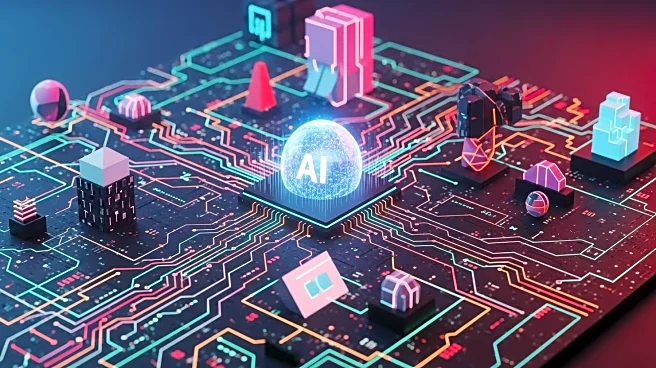What's Happening?
The latest installment in the Tron series, 'Tron: Ares,' directed by Joachim Ronning, continues the saga with a focus on artificial intelligence. The film, set in a neon-lit world, explores themes of humanity and AI, questioning what makes us human. While the movie retains the techno-industrialist aesthetic of its predecessors, it introduces new elements, such as music by Nine Inch Nails, and features Jared Leto and Evan Peters in key roles. The film's narrative delves into the potential dangers of AI, portraying programs as beings that follow orders and highlighting their use as killing machines. Despite its futuristic setting, the movie reflects on the implications of AI in everyday life, suggesting that the greatest danger lies in how AI tempts us to forego critical thinking.
Why It's Important?
Tron: Ares offers a cinematic exploration of AI, a topic of increasing relevance as technology continues to advance. The film's portrayal of AI as both a tool and a threat mirrors real-world concerns about the ethical and societal implications of machine learning and automation. By engaging with themes of humanity and technology, the movie contributes to ongoing discussions about the role of AI in society and its impact on human behavior. As AI becomes more integrated into daily life, films like Tron: Ares provide a platform for audiences to reflect on the potential consequences of living alongside intelligent machines.
Beyond the Headlines
The film's exploration of AI extends beyond its narrative, prompting viewers to consider the broader implications of technology on human identity and creativity. It raises questions about the balance between technological advancement and the preservation of human values, such as love, mortality, and creativity. Tron: Ares also highlights the cultural impact of AI, suggesting that entertainment can shape public perceptions of technology and influence societal attitudes towards innovation.









